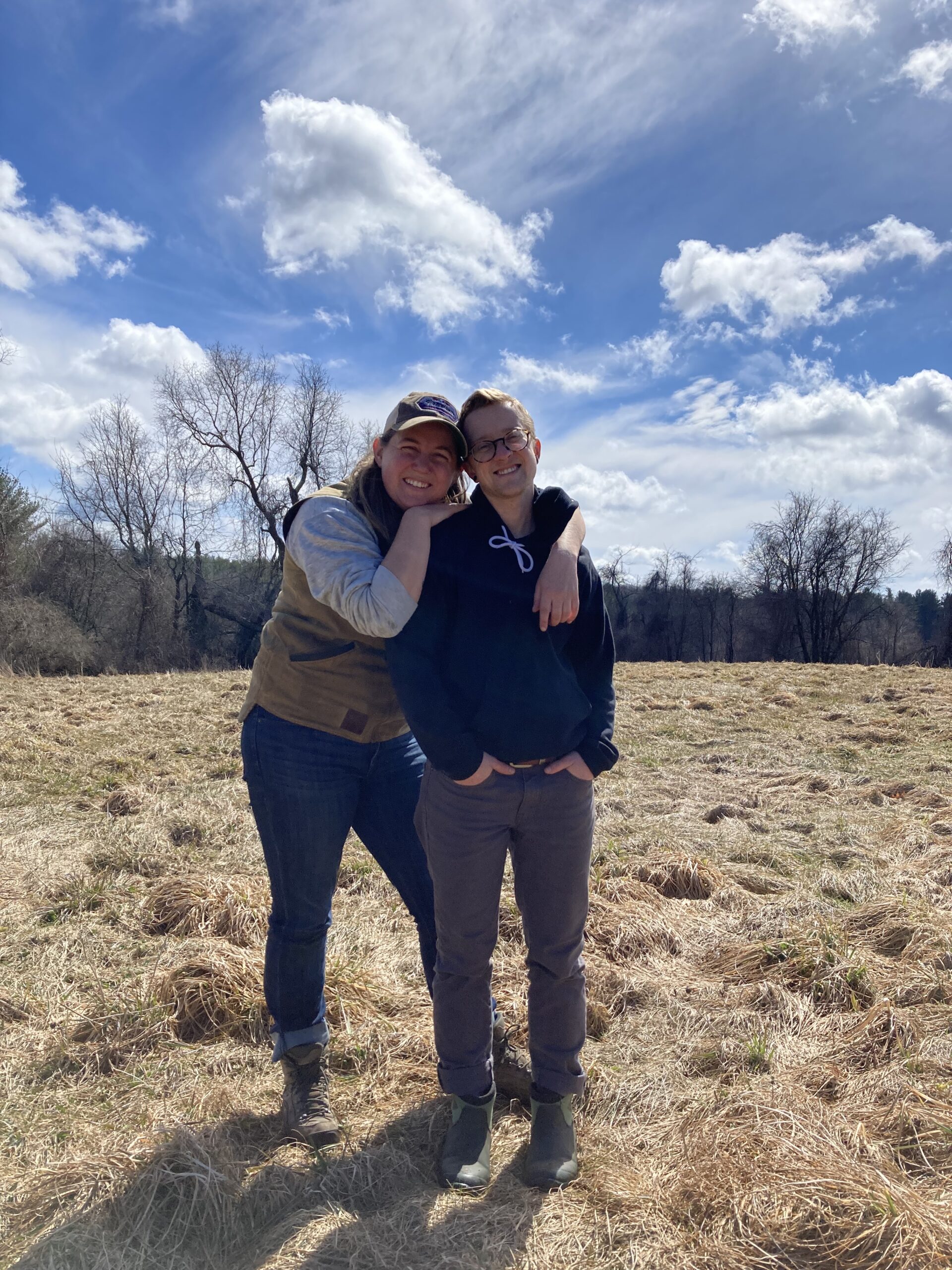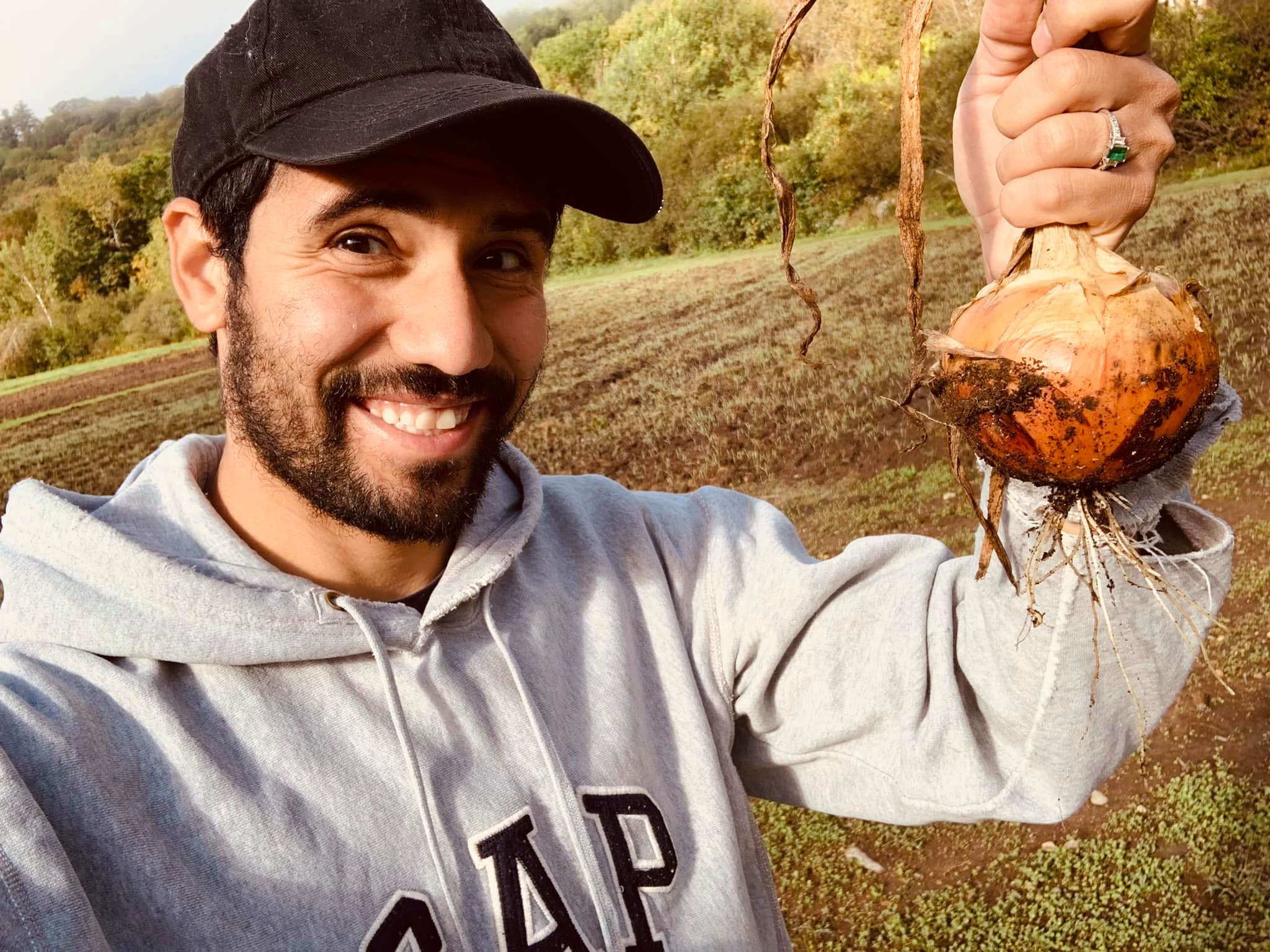AFT’s New England Farmer Microgrants Program awards $462,000 to 96 farmers
The New England Farmer Microgrants Program (NEFMP) awarded grants aimed to support New England farmers. Now in its third year, the program addresses some of the key barriers faced by farmers in the region — access to land, resources to expand production on new or existing land, farm succession and land transfer planning, and adopting regenerative agriculture or soil health practices on livestock operations.
This year the program is excited to award 96 farmers with $462,000 in funds to support a range of projects. This is the largest cohort in the history of the New England Farmer Microgrants Program.
“New England has a great diversity of farms and farmers, and the challenges they face to get onto farmland or expand production have been intensified given the economic impacts of the pandemic,” said Kristen Irvin, New England Program Coordinator. “These microgrants awarded by AFT in 2022 will have a huge impact on not just the awardees’ farm business operations but on their families and communities as well.”
Approximately eighty percent of the 2022 awardees are livestock operations in 23 specific western New England counties with projects that focus on adopting regenerative agriculture and soil health practices. This was made possible by increased funding through the Western New England Regenerative Agriculture Project, the largest soil health project in New England’s history. The project, led by NRCS and American Farmland Trust, and involving many other partners, will provide resources to livestock farmers to implement regenerative agriculture practices, combat climate change, and improve the resiliency of our agricultural systems.
“The specific soil and farming characteristics of New England make it a region where the adoption of regenerative agriculture can have a significant climate impact,” said Dr. Emily Cole, New England Deputy Directory. “According to AFT’s Farms Under Threat: A New England Perspective report, dairy and livestock operations make up 67 percent of New England farmland. Farmers face uncertainty each growing season–those willing to invest in new methods by adopting regenerative practices are then taking additional risks. Significantly bolstering funding through the New England Farmer Microgrants program is helping our region’s farmers cover some of the critical costs of equipment and services to facilitate their transition to adopting more regenerative practices.”

Marlo Stein and Archer Meier, young farmers who own Round Table Farm in Hardwick, Massachusetts, will use their award to purchase and install reliable perimeter fencing for their future goat herd. This will increase their financial viability as a business and ensure pasture conservation to continue the legacy of their farmland. Round Table is a diversified flower and dairy farm that operates on a portion of what was the historic Robinson Farm, known for its organic, raw milk cheeses sold throughout the region. Stein and Meier purchased a portion of the farmland in 2021 and will be implementing soil health-focused grazing on the land. Adding goats will also allow them to add mixed-milk and goat cheese products into their business.
“Like many young farmers, accessing farmland has been a patchwork of owning, leasing, and partnering with local land trusts,” said Marlo Stein of Round Table Farm. “We purchased our farm from fifth-generation family farmers who wanted their historic farm to be stewarded as a sustainable farm for many more generations. We feel so lucky to be partnering with the East Quabbin Land Trust to restore 30 acres of that land back to viable pasture and this grant is key in helping us install fencing that will allow us to rotationally graze goats. Adding goats to our farm will both help manage invasive brush while also allowing us to add goat and mixed milk products to the cheesemaking side of our business.”
NEFMP also funds diversified vegetable producers throughout New England. Magnetic Fields Farm, a Black, Indigenous, People of Color (BIPOC), and LGBTQ+ owned farming collective in Athens, Vermont, will use awarded funds to solve key drainage issues that have impacted the resiliency of their farm. They specialize in sofrito, a staple in Latin Caribbean cooking that is difficult for New England’s growing Latinx population to access. Sofrito is made up of garlic, onions, green and red peppers, cilantro, and recao (a type of coriander). Their funds will help the farm bring more farmland into production and increase resilience to flooding.

“We prepare and maintain farmland for Queer and BIPOC farmers in southeast Vermont as a way to promote local food sovereignty and uplift historically marginalized communities”, said Wichie Artu of Magnetic Fields Farm. “But in 2021, climate-driven flash flooding took part of our field. With the AFT grant, we will restore the streambank and bring more land into production for farmers in our community.”
Since its launch in 2020, the New England Farmer Microgrants program has provided, in total, approximately $762,000 in grants to farmers across the region.
Projects will take place over the course of the 2022 season. You can view a map of all New England Farmer Microgrant Program recipients here.
You can follow Round Table Farm and Magnetic Fields Farm on Facebook to see how their projects progress.
Explore the map of all 2022 NEFMP awardees and find one in your area!
The icons differentiate the the livestock operations adopting regenerative agriculture practices through the Western New England Regenerative Agriculture Project (80% of grant funds), and the broad range of farms undertaking projects that expand production, increase land access, or undertake farm succession planning across New England (20% of grant funds).

